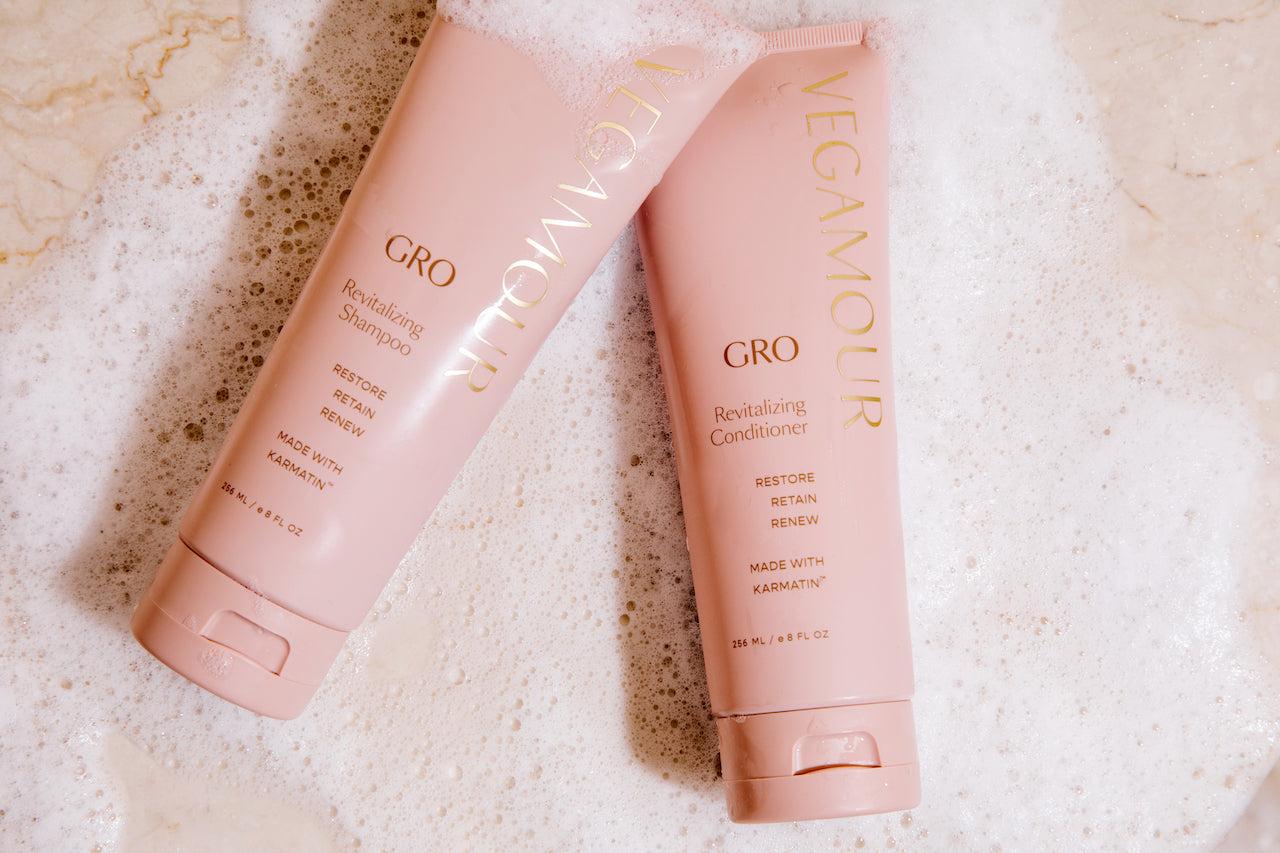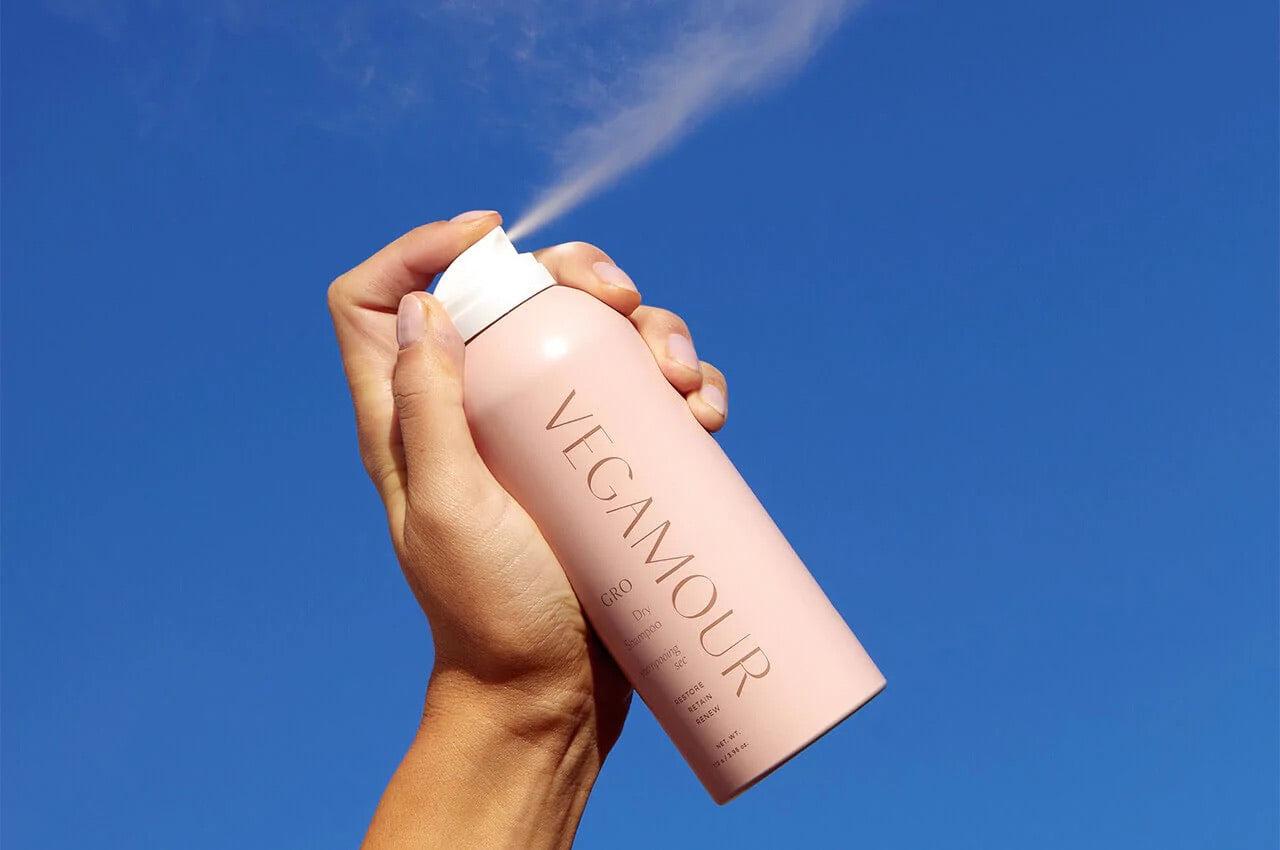An itchy scalp is a common issue that can have various causes. It could be as simple as not rinsing the shampoo thoroughly or something more serious that requires medical attention. We spoke with an expert to understand what might be causing this discomfort and to learn about the best products for a healthy scalp environment.
Table of Contents
Causes of Itchy Scalp
There are several reasons why your scalp may feel itchy. Most of them are related to bacteria or scalp buildup. However, there are other factors that can irritate your scalp, including:
- Buildup of dead skin cells
- Dryness or irritation
- Fungal infections, like scalp ringworm
- Dry scalp or weather changes, such as the dry air in winter
- Allergic reactions to hair dye or hair product ingredients
- Excessive natural oils
- Scalp psoriasis
- Flaky scalp or dandruff
- Head lice
- Nerve problems
- Symptoms of autoimmune disease
- Seborrheic dermatitis
If you notice that your scalp becomes itchy right after washing your hair, it could be related to your shampooing or conditioning habits.
Expert Advice on Itchy Scalp
We spoke with Anna Chacon, a dermatologist at MyPsorasisTeam, to understand how shampooing habits can contribute to an itchy scalp. Chacon explained that not thoroughly washing out the hair products, such as shampoo, conditioner, oils, or waxes, can lead to an itchy scalp. These products can change the pH balance of the scalp and hair, making them prone to dryness and flakiness. On the other hand, not applying enough conditioner after washing can also cause itchiness due to an imbalance in pH levels.
Shampoo Ingredients That Can Cause Irritation
Apart from the way you wash and condition your hair, the ingredients in your hair care products can also cause scalp irritation. If you’ve determined that you’re rinsing your hair and scalp thoroughly and using enough conditioner, it’s worth checking if the ingredients in your styling products are causing the itchiness. To identify the culprit, set aside a weekend to use only your regular shampoo and conditioner without any styling aids. If the problem resolves, it’s possible that the ingredients in your styling mousse or gel are causing the itchiness. Avoid using products that contain common irritants like phthalates, synthetic fragrances, sulfates, silicones, parabens, and formaldehyde.
Shampooing Frequency
Sometimes it can be challenging to determine if you’re washing your hair too much or too little. Overshampooing can make your scalp dry and itchy, while infrequent shampooing can lead to scalp buildup, causing itchiness. It’s best to shampoo and condition your hair only when it becomes dirty. Finer and thinner hair might require more frequent shampooing as the oily sebum can travel down the hair shaft easily. On the other hand, very curly or dense hair may need less frequent shampooing as the scalp oils don’t travel down the hair easily. Choose a “smart” shampoo and conditioner that adjusts to your hair’s specific needs, providing the right amount of volume, moisture, and protection.

Other Tips for Treating an Itchy Scalp
In addition to mindful shampooing and conditioning, here are some other actions you can take to balance your scalp:
Use a Scalp Serum Regularly
Using a detoxifying serum can clarify your scalp gently while delivering essential nutrients to create a healthy scalp biome. This environment will ensure your scalp is comfortable and free from itchiness.
Use a Dry Shampoo
Opt for a cruelty-free dry shampoo to absorb oil, perspiration, and odors between shampoos. Occasionally skipping a shampoo treatment and using a scalp-balancing dry shampoo might help improve a dry scalp condition.

Don’t Scratch or Pick
Avoid scratching or picking your scalp as it can worsen itchiness. It may lead to abrasions that allow bacteria to thrive and cause scabbing, scarring, and even hair loss.
Homeopathic Treatments
Certain essential oils can relieve scalp itchiness. Dilute two to three drops of your preferred essential oils, such as tea tree oil, rosemary oil, or lemongrass oil, in a carrier oil like coconut oil, marula oil, or olive oil. These homemade scalp oil treatments can provide relief.
Medical Care
If your itchy scalp persists, it’s advisable to consult a doctor or dermatologist. They can rule out conditions like scalp psoriasis or head lice and determine if you have an allergic reaction to a hair product. A doctor may prescribe a medicated shampoo with anti-inflammatory properties to relieve itchiness. In severe cases, oral antibiotics might be prescribed.
Banish Itchy Scalp Woes With Proper Care
An itchy scalp that occurs right after shampooing is generally not a severe concern but can be bothersome. Try implementing the tips mentioned in this article, and if you don’t find relief, seek medical advice for further assessment.
For optimal scalp care, analyze your hair care habits and the products you use. Consider using gentle, clinically proven, plant-based scalp wellness products. These products can help create an ideal scalp environment, leading to thicker, fuller, and healthier hair.
Photo credit: Maria Korneeva/iStock


